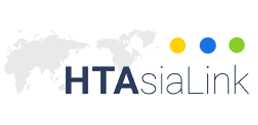Collaboration
Our primary objective is to ensure that the Thai population can have, access and utilize appropriate health technologies. Collaborating with networks and organizations with aligned missions, both nationally and internationally, enables us to maximize the impact of our work—not only for Thailand but also for the global community.

Networks
HITAP’s networks serve as a hub connecting experts, government agencies, and international organizations engaged in health technology assessment. Their primary goal is to generate robust evidence that supports effective and sustainable health policy decisions.
Through cross-sector collaboration, these networks facilitate the exchange of knowledge, experiences, and best practices from both domestic and global partners. This enhances the capacity of health professionals and strengthens the processes for evaluating health technologies and interventions to meet international standards.
Moreover, HITAP’s networks play a critical role in promoting the use of research evidence to inform policies that are cost-effective and equitable. This ensures that people have access to quality healthcare services without financial hardship, contributing to a more sustainable health system and reducing inequalities in society.

Network for HTA research and evidence-based policy in Asia
HITAP’s networks bring together both institutional and individual members engaged in health technology assessment research and evidence-informed policy decision-making across the Asia-Pacific region, as well as in Europe, Africa, and North America.
HTAsiaLink serves as a platform for sharing and exchanging knowledge on priority setting, a cornerstone of evidence-based policymaking. Its primary aim is to strengthen research capacity and promote the integration of HTA evidence into health policy decisions.

Guide to Economic Analysis and Research (GEAR)
GEAR offers diverse guidance to address methodological challenges faced by researchers, academics, and practitioners conducting economic evaluations in low- and middle-income countries. It identifies gaps, proposes practical solutions, and highlights future research questions to support the generation of robust evidence and effective problem-solving.

Strengthening Active Partnerships for Policy and Health Intervention Research and Evaluation (SAPPHIRE)
A system that drives and sustains Universal Health Coverage (UHC) while strengthening health systems at both national and regional levels. Through experts and networks, it promotes the systematic use of health technology assessment and health systems research to support evidence-informed policymaking and expand access to healthcare, even under limited resources, both in Thailand and partner countries.
